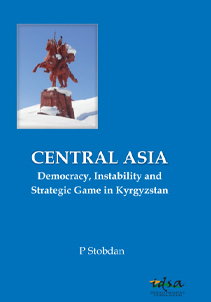Afghanistan Under Taliban
- Publisher: Pentagon Press
The edited volume comprises 16 chapters contributed by Afghan, Central Asian, Iranian, Russian, Western, and Indian scholars and analysts. The chapters not only dwell on country perspectives but also key issues of concern to the people of Afghanistan and the wider region. It includes terrorism, transnational crime, drug production and distribution, the governance system and the state of education in Afghanistan. The contributions in the volume paint an unflattering view of the ground reality in Afghanistan, and a connecting thread of pessimism runs through various analyses.
- ISBN: 978-81-988370-8-0,
- Price: ₹ 1295/-
- E-copy available
- Vishal Chandra
- August 5, 2025














